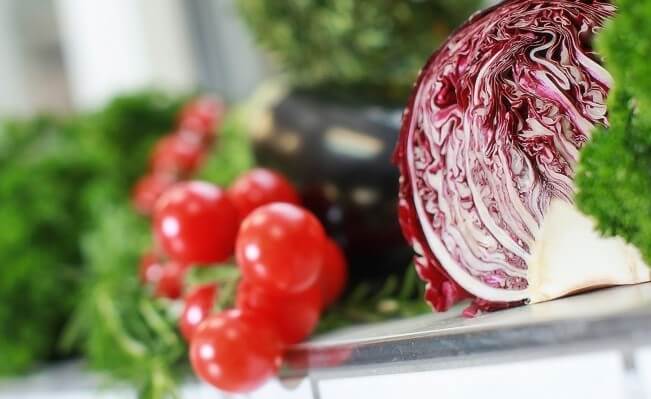Are Organics Becoming The New Prada?

© Schwarzwald Panorama, Germany
Orthorexia – is it the new Prada?
As the war on diet continues to rage, here’s an earlier debate I was commissioned to write in 2010.
Now trending: Organics
It still holds its own today – and is a precursor to how we view Paleo vs Raw vs a wholegrain diet. Fashion, fad or function? You be the judge! I would love to hear your thoughts.
Are organics becoming the new Prada?
The natural procession of organic foods swelling our national shelves has given rise to a new breed of health-hungry consumer. This neutralised carbon copy offsets the once guilt-racked minds of inner urban supermarket mums as they wade through a sea of processed, nutrient enriched consumables with magical claims.
The organic shopper’s basket overflows with a collective bounty of processed food is a gourmet escalator to a disease-free longevity. Gone are the peace-loving hippy associations once hyper linked with healthy food. The new breed drives a Hybrid and knows that N.A.A.S.A is not a space station. Much like the yoga student hell bent on inner peace, who lights up a fag in the car park in a post Shivasana haze, the pseudo-spiritual connotations that embalm high brow organic shoppers offer a new spin on fashion labels. You can see them squinting over nutritional panels in the nature aisle or thumbing the mainstream food press for the latest organic product.
If it’s organic it must be healthy they cry. This is not always the case. Stop to consider the food miles. Organic muesli from the U.S., which has travelled much further than a locally made in Melbourne conventional product like Flip Shelton’s muesli. Reducing the energy footprint of food distribution is also important as part of global sustainable awareness.
“Don’t Panic, It’s Organic”
Being actively in the middle of the organic movement in Australia for fifteen years with an organic cooking school, a holistic nutrition clinic and the delivery of organic events for Melbourne Food and Wine Festival, I have witnessed and celebrated organic food finally integrating into the mainstream. The food media teased me for being the “Don’t Panic, It’s Organic” lady – the name of many successful cooking classes and events – with a cheeky, yet conventional smirk.
During this time I have watched an endless stream of diners at organic cafés and restaurants hoe into three courses and coffee with abundant enthusiasm that they can continue to overeat because it’s organic. Yet the health issues remain. The pandemic of diabetes and obesity continues and the syndrome of the irritable bowel is becoming an epidemic.
The orthorexic consumer looks to replace their previously processed pantry with organic substitutes as opposed to embracing seasonal, fresh organic produce and learning to cook with the harvest. In addition, the digestive problems stemming from a previous diet of pesticide infused conventional produce must be rectified before the benefits of a new life with organics can truly enrich one’s cellular self. Yet many consumers who purchase processed organic food are still overweight, fatigued or addicted to coffee and carbohydrates.
Nutrition is one thing, but…
The notion that just eating organic food is doing you good is a myopic view. Physical exercise is also the key to good health and eating organic seasonal vegetables should be mandatory health insurance. Consuming only organic food is not a weight loss program. While nutrition is 80% and fitness is 20% of the equation, oxygenation to the brain by way of interval fitness training, reduced caloric intake and a healthy, balanced emotional life are also mandatory components for the integrity of the digestive function.
It is essential to repair the digestion especially the mucosal lining of the gut and the integrity of the liver restored for the healing properties of premium fresh organic produce to take hold. Whilst I am not disputing that one can produce better food when there are no chemicals, we seem to have side stepped the real issues such as soil demineralisation contributing to the deficiency of essential trace minerals including selenium, zinc and magnesium, which are vital for our cellular health.
Buy Foods, Not Packaging
Mary Eckhardt, former co-owner of The Green Grocer in North Fitzroy has always had an eye for good packaging; she spent most of her first years of business in organics pulling her hair out over the unsightly brown packaging; it now seems it has gone to the other extreme. She now sees grossly over-designed and over packaged products; many imported that have become a bit homogenised in look with much of what can be found on the supermarket shelves in conventional lines.
To any retailer, packaging and product presentation is one of the most important aspects to ‘catching’ the sale. There is nothing wrong with good packaging, as long as the product inside compares in taste and quality. Mary said “we always kept our packaging and labelling to the minimum; I suppose a ‘style and look’ in itself, but one that I feel is appropriate for the product. When I look at our customers shopping baskets these days there are clearly two types of shoppers. The wholefood shopper is still in existence, buying small grabs more frequently. The other is going for house made products, huge growth for us in this area, and embellishing their basket with small amounts of fresh, mainly fruit, and well packaged treats!”
In a nutshell
The righteous eating theorists have taken the process of organics too far. The raw food movement shouts out that non-thermal processing is indeed the only passage to longevity. The orthoplexic health attitude has created a new psychological obsession with food; its virtuous pursuit of choosing organic becomes a virtually unsustainable choice when it comes to our emotional health, which ultimately governs our digestion. Products of the organic industry are becoming the latest superficial, must-have brands.
So, are organics becoming the new Prada?


